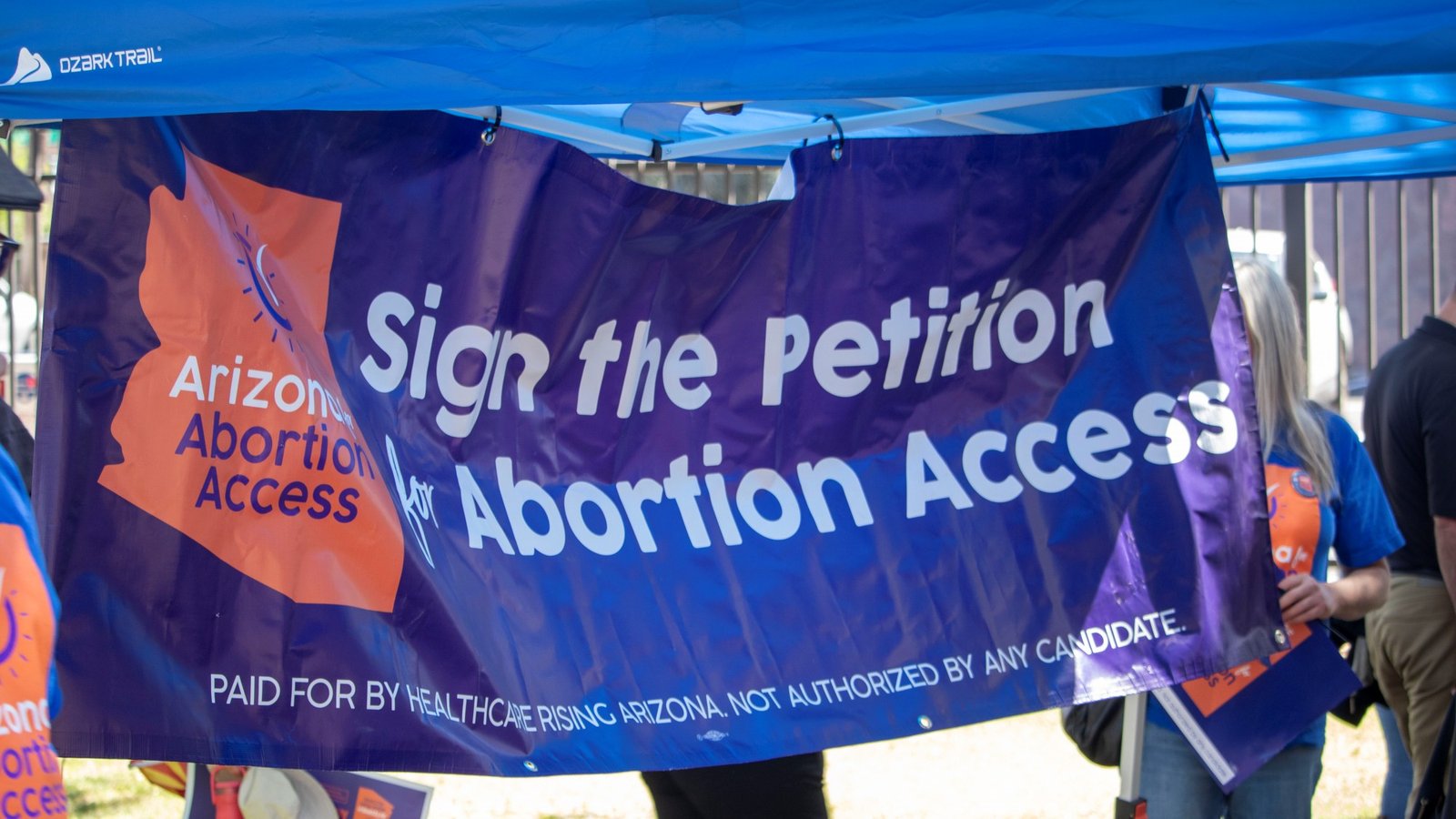2024 election
Abortion Rights Activists File Lawsuit Over ‘Partisan’ Ballot Measure Summary on Ensuring Access

In a controversial move, Arizona Republicans have amended the description of a state abortion rights ballot measure, adding the term “unborn human being,” leading to a lawsuit that claims this language breaches state law demanding impartiality.
Cheryl Bruce, the campaign manager for Arizona for Abortion Access, criticized GOP lawmakers for their relentless opposition to the ballot measure, which recently garnered a record number of voter signatures to qualify for the November election.
“The same legislators who enacted an extreme abortion ban without exceptions are now attempting to skew the ballot measure description to confuse voters,” Bruce stated during an online press conference announcing the lawsuit.
On July 8, a panel of state lawmakers met to finalize summaries for various ballot proposals, including the Arizona Abortion Access Act. This measure aims to overturn the current 15-week abortion limit and enshrine the right to abortion up to fetal viability, around 24 weeks, in the state constitution. It also permits post-viability abortions if necessary to protect a patient’s life or health.
The eight Republicans on the Legislative Council committee, who supported the 15-week ban in 2022, endorsed the usage of “unborn human being” in the ballot summary. Reproductive rights advocates argue this decision violates Arizona’s legal requirement for impartial summaries.
Earlier this week, the committee, divided along party lines, approved the ballot measure summary including the contentious phrase. State law necessitates an impartial analysis of each ballot proposal, yet the inclusion of “unborn human being” sparked allegations of partisanship.
Austin Yost, an attorney for Arizona for Abortion Access, urged lawmakers to replace “unborn human being” with “fetus,” emphasizing the latter as a medically accurate and impartial term. According to Yost, Arizona law mandates impartiality in ballot summaries, and the courts have upheld this standard as essential.
“The statute sets impartiality as the guiding principle,” Yost stated, noting that “unborn human being” is politically charged and often used by anti-abortion groups.
Republican lawmakers argued that “fetus” is equally politically charged. House Speaker Ben Toma defended the inclusion of “unborn human being,” suggesting it balanced the summary and claiming partisanship is unavoidable.
“There is no way to avoid it,” Toma said. “Using ‘fetus’ is partial for those on the pro-life side.”
Yost rebuffed this claim, maintaining that “fetus” is a neutral, medically accurate term used widely in healthcare and government contexts, including Arizona law. He argued that the proper forum for political opinions is the arguments section of the voter pamphlet, not the summary.
“I’m not a doctor. I don’t care what the medically accurate term is,” Toma remarked, stressing his concern with political implications rather than medical accuracy.
Rep. Stephanie Stahl Hamilton, D-Tucson, attempted to persuade Toma by questioning the substantial difference between a fetus and an “unborn human being.” Toma stood firm, reiterating that both terms are politically charged depending on one’s viewpoint.
Rep. Travis Grantham, R-Gilbert, raised a different concern, questioning whether omitting “unborn human being” would violate a 2021 fetal personhood law. This law, though currently blocked by court order, mandates interpreting laws to acknowledge the rights of unborn children. The law remains on the books but is unenforceable.
Yost pointed out that partisan language is restricted in ballot summaries, despite its presence in other statutes. Lawmakers can use partisan language in laws they pass, but not in voter pamphlet summaries.
Rep. Teresa Martinez, R-Casa Grande, disagreed with Yost’s interpretation and emphasized the lawmakers’ authority in finalizing the summary.
“You have your language, and I have mine, and I am the one with the vote,” she asserted.
Democratic attorney Andy Gaona reiterated the lawsuit’s argument that state law requires an impartial analysis of ballot proposals, free from provocative phrasing. He cited a 2013 state supreme court case reinforcing the need for a fair, neutral summary.
Gaona contended that even if “unborn human being” were accurate, prior rulings mandate that accurate statements must still meet the law’s impartiality requirements. The inconsistent use of terms like “fetus” and “fetal” alongside “unborn human being” could confuse voters, further underscoring the need for a neutral summary.
He argued that Maricopa County Superior Court should intervene and compel the legislature to revise the ballot measure description to ensure impartiality, thereby protecting voters’ rights to unbiased information.
The campaign seeks a preliminary injunction to halt the ballot summary’s inclusion in the voter pamphlet and is also requesting attorney fees reimbursement. The court is expected to expedite the case to allow for potential appeals and further legislative actions if needed.
In response, GOP leaders defended their decision, insisting the phrase was not politically motivated and expressing confidence that the court would uphold their interpretation.
“I am confident the court will agree that when we talk about abortion, we are unmistakably talking about unborn children,” said Toma. “Arizona’s 15-week law reflects that fact. This lawsuit is frivolous.”
“We believe the Legislative Council drafted an unbiased description that accurately reflects the measure,” echoed President Warren Petersen. “We are confident that we will prevail. Voters will have the information they need to make an informed decision.”


















